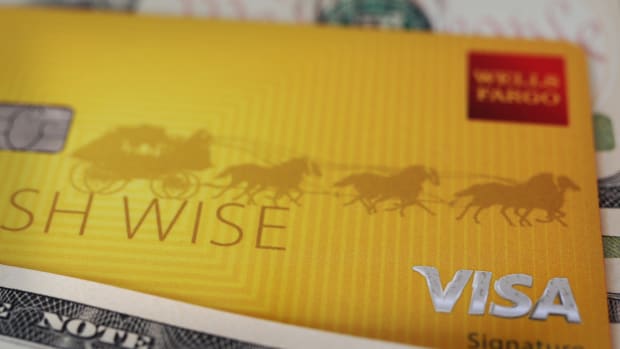Over the weekend, Rolling Stone broke the news that half a dozen of the bank's clients had their banking accounts with Wells Fargo (WFC) canceled with no previous warning. What do they have in common? Each has previously or is currently working in the adult entertainment industry. Some performers have held accounts with the bank for 25 years or more.
In 2014, Chase Bank unceremoniously closed down several adult performers' accounts with no explanation or warning. Adult performer Teagan Presley told XBIZ that it was her long-standing personal account, through which she doesn't receive or distribute funds associated with her adult job. But that didn't matter to the bank.
“I called them and they told me that because I am, I guess, public and am recognizable in the adult business, they’re closing my account," she said.
The phenomenon isn't just happening to adult performers, either. In 2019, HSBC Bank (HBCYF) canceled Genevieve LeJeune's business account for her meetup service, Skirt Club. The membership service allows bisexual queer women to get together in a safe space to enjoy events like burlesque shows, traditional Japanese robe bondage presentations, and to hook up if they so desire.
These kinds of meetups are a perfectly legal alternative to picking someone up in a bar or club. But when VICE reached for a response, an HSBC representative said, “Any decisions to close an account are taken on a case-by-case basis." It's hard to see the difference between this circumstance and, say, users who use their bank accounts to pay for services like Tinder Platinum.

Shutterstock
Wells Fargo Shuts Down Adult Performers' Accounts
On Sept. 2, President of the Adult Performance Artists' Guild (APAG) Alana Evans posted a tearful Twitter video saying that her long-standing bank account with Wells Fargo had been closed without precedent. She says she has no infractions on any of her bank statements, and received no warning that her account was at risk of closure.
“There was a time […] where women had a difficult time getting bank accounts to begin with, and now that we’re all on OnlyFans […] and we’re making money outside of the traditional way, and it’s still legal, my bank can decide that I’m not worthy of a relationship with them after 30 years.”
She goes on to say that other banks, in her professional experience, have denied accounts to others in her field. She calls out banks like Chase, Bank of America (BACXL) , and Citi Bank (C) for participating in "occupational and financial discrimination."
It isn't just current adult performers experiencing these surprising account closures. After a financial relationship with Wells Fargo lasting 22 years, former adult performer Raylene also received notice that her account would be closed. She's been out of the adult performance circuit for more than a decade.
The letter, which was sent to at least five other adult performers over the weekend, says that the bank “performs ongoing reviews of its account relationships in connection with the Bank’s responsibilities to manage risks in its banking operations,” and that the recipient’s accounts will be closed “as a result of this review.”
Why Is This Happening Now?
According to adult performer Kayden Kross, several banks have expressed concern over the high rate of chargebacks on accounts associated with the adult industry. After purchasing adult materials, some customers demand their money back. According to banks, this could force them into a high-risk situation.
However, in each of the above circumstances, account holders claimed that they'd had no problems with chargebacks. In fact, according to Rolling Stone, none of the performers currently entangled with Wells Fargo were even using their accounts to process customer payments.
Many in the adult entertainment industry have speculated that conservative anti-porn organizations like the National Center on Sexual Exploitation (formerly Morality In Media) and Exodus Cry have been putting political pressure on companies to cut off financial resources for adult performers.
But for many who participate in similar informal economies -- influencers, sexual educators, or independent online adult toy stores -- proof that a bank can remove a person's means of financial wellbeing simply due to bias against legal forms of labor is a troubling problem.







